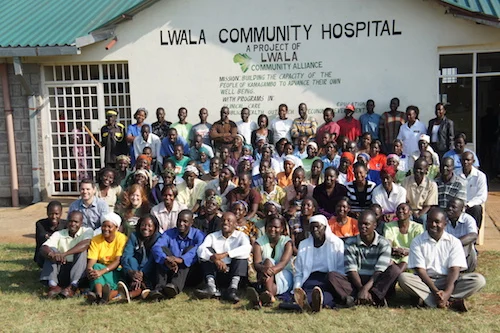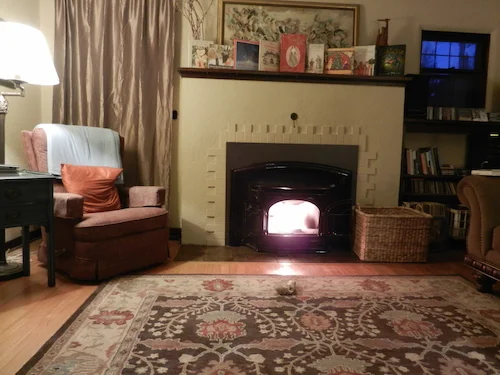For the last year I’ve been trying to understand my mother in a deeper way. I’m confused by so much, even my inability to see things for what they were. I don’t have a lot to help unlock the mysteries, so I hold tightly to the things I do have that represent her life and tell her stories: the photo albums and scrapbooks, an interview I did with her in 1976 for a college class, and the recipes.
All in Hospitality
 You don’t have to have a sidewalk to take a walk. One side of the street will do. A dirt road will do. The edges of your neighbors’ lawns might do, depending on the lawns and the neighbors. But those have other purposes. A sidewalk is a zone between where we live or work or shop and where we move in vehicles. It is made for walking.
You don’t have to have a sidewalk to take a walk. One side of the street will do. A dirt road will do. The edges of your neighbors’ lawns might do, depending on the lawns and the neighbors. But those have other purposes. A sidewalk is a zone between where we live or work or shop and where we move in vehicles. It is made for walking.
People were made for walking, too.
I Believe in Messy Vans
There were many strata to the debris on the car floor, but the base level was dirt. This dirt originated from various locations — from the Little League diamond (my brothers), soccer fields (whole family, at the boys’ insistence), and hiking trails (the whole family, at my father’s insistence). Even though soccer felt like a chore to me, there was something I appreciated about the relational politics of the game. Like new seating arrangements, new teams aligned our loyalties in random configurations. There would be at least one athletic kid on both sides, one “delicate flower” — a third of the way into the game, she’d need comforting — and one parent.
 Every step merits intentionality and reevaluation. I have learned that a way to assess whether or not I have remained in rhythm while crocheting is to compare the row of stitches I have just finished to the foundational row with which I started. With every turn of the corner, I raise up the work and see if it is still in balance. If it is, I keep going. If it is not, I unravel just a few stitches back and adjust accordingly. This is how a blanket gets made, with ever-present intentionality.
Every step merits intentionality and reevaluation. I have learned that a way to assess whether or not I have remained in rhythm while crocheting is to compare the row of stitches I have just finished to the foundational row with which I started. With every turn of the corner, I raise up the work and see if it is still in balance. If it is, I keep going. If it is not, I unravel just a few stitches back and adjust accordingly. This is how a blanket gets made, with ever-present intentionality.
Consider the Oven
As I apply salve to the blisters, June Carter Cash's song petitions the circle to be unbroken in her Southern-honey voice. We light the candles and sit down to supper. We consider the gift-oven's miraculous powers and presence — gifts I did not give us by “fixing” the situation, but which came to us through the generosity of others.
The Ritual of Returning (to Kenya)
As much as I miss the surety of my childhood idea of home, I am grateful for the tension that stretches me between two continents. I am drawn back not as an explorer or safari gazer who longs for Africa in the naïve and ideal sense, but because I love what Africa has become for us — a place where we belong, a kind of home. And I know that some day when this ritual of returning to Kenya becomes less regular, I will be homesick.
Conversations About Race
Eight years ago, the life paths of three women — one black, one white, one multi-racial — crossed, and a unique friendship was born. The topic of race was central from the inception, and we shared a fundamental sense that we needed one another as we explored the terrain of race. Despite the fact that many of our conversations over the years have been difficult and sensitive, they’ve also been beautiful.
 In so many ways, my ideal home is like the earth itself. Perhaps that is the real reason I eschew plastic and acrylic. Perhaps that is why I love wood and wool. Why I like to see our rooms change with the seasons. I want to remember that I am made from the stuff of earth. I never want to forget that the earth is my God-made home. The sky a tent overhead.
In so many ways, my ideal home is like the earth itself. Perhaps that is the real reason I eschew plastic and acrylic. Perhaps that is why I love wood and wool. Why I like to see our rooms change with the seasons. I want to remember that I am made from the stuff of earth. I never want to forget that the earth is my God-made home. The sky a tent overhead.
1,000 Days
Never mind that this child is in a different country than the one for which we have been approved. Never mind that moving forward with this child will mean redoing much of our paperwork, once again driving around to banks, doctor’s offices, police departments, and myriad government buildings to get new documents printed, notarized, and certified. My friend Jill has a song that sings, “And then out of nothing, it’s telling me something I didn’t know that I knew.” There is a mysterious kind of knowing that can happen to a person, and it seems all the more sweet and supernatural when it comes to your life partner in the same time and space.
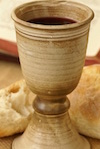 We didn't totally understand what Communion was. At least I didn’t. If it was magical to the Catholics, literally becoming body, and blood, and meaningless to atheists, a bizarre religious ritual, I suppose I fell somewhere in between. We read no books about Communion, took no classes to prepare, made no declarations of faith besides the act itself. Now I see the act is its own declaration, its own remembrance. But I didn't know then.
We didn't totally understand what Communion was. At least I didn’t. If it was magical to the Catholics, literally becoming body, and blood, and meaningless to atheists, a bizarre religious ritual, I suppose I fell somewhere in between. We read no books about Communion, took no classes to prepare, made no declarations of faith besides the act itself. Now I see the act is its own declaration, its own remembrance. But I didn't know then.
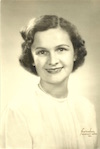 . . . so much of what Doll taught me had to do with working around missteps — my own, and others’ — with flexibility and grace. And, posthumously, that she’s redefined the meaning of hospitality for me, so that I think of it not only in its traditional sense, but also in the day-to-day as I “host” my children, their friends, my husband, and our friends and family. Doll cared for and catered to her guests. She hoped to spoil them with the best of what she had to offer — a thing that, when translated, came down to great love and a capacity to supply equal amounts of comfort and whimsy.
. . . so much of what Doll taught me had to do with working around missteps — my own, and others’ — with flexibility and grace. And, posthumously, that she’s redefined the meaning of hospitality for me, so that I think of it not only in its traditional sense, but also in the day-to-day as I “host” my children, their friends, my husband, and our friends and family. Doll cared for and catered to her guests. She hoped to spoil them with the best of what she had to offer — a thing that, when translated, came down to great love and a capacity to supply equal amounts of comfort and whimsy.
Find the Good and Praise It
Like it or not, I have been fine-tuned since childhood to feel the weight of the world’s woes more than most, perhaps like you who read the Art House America Blog (or write for it). Luci Shaw calls it the poet’s curse, this heightened sensitivity to life’s joys and sorrows. We can’t not feel what we feel. I couldn’t agree more and yet the nagging question for me comes down to this: how do we find the good and praise it in the midst of so much suffering? How do we flesh out our callings with lives of deep joy and courage? These questions haunt me year after year. I can’t promise much in the way of satisfying answers, only glimmers, a semblance of peace.
 She straightened herself up, turned to face me, and put her right hand over her left — a portrait of dignity and poise. And then, with just the two of us in the room, she began to sing over me.
She straightened herself up, turned to face me, and put her right hand over her left — a portrait of dignity and poise. And then, with just the two of us in the room, she began to sing over me.
“Happy birthday to you. Happy birthday to you. Happy birthday, dear Mr. Ramsey. Happy birthday to you.”
Then she smiled, turned, and left the room.
And I wept.
 Sometimes I am frustrated with the way my denominational tribe approaches the Lord's table. (Sometimes I am frustrated with the ways single people are invisible in the church.) Occasionally I sneak off for what I call "a maintenance dose of liturgy," to a place where everything in the service builds to the table, and we literally approach it, getting up out of our seats and walking to it and holding out our hands. (Occasionally I sneak off to someplace where I expect to be invisible.) I did that a few Sundays ago.
Sometimes I am frustrated with the way my denominational tribe approaches the Lord's table. (Sometimes I am frustrated with the ways single people are invisible in the church.) Occasionally I sneak off for what I call "a maintenance dose of liturgy," to a place where everything in the service builds to the table, and we literally approach it, getting up out of our seats and walking to it and holding out our hands. (Occasionally I sneak off to someplace where I expect to be invisible.) I did that a few Sundays ago.
 Hospitality begins with homemaking, and proper homemaking is always connected to hospitality. The slow roll of daily tasks, like scrubbing the toilets and sweeping the floors. The seasonal study of vegetables and how they might come together for a meal. The predictable safety of steady care among housemates. And then you want others — non-residents, the stranger the better — to enjoy what you enjoy. You want to extend to others whatever provisions and comforts belong to your household. Even introverts may find that it feels natural to make home in this way. Hospitality is the art of homemaking for people who don’t belong to your home.
Hospitality begins with homemaking, and proper homemaking is always connected to hospitality. The slow roll of daily tasks, like scrubbing the toilets and sweeping the floors. The seasonal study of vegetables and how they might come together for a meal. The predictable safety of steady care among housemates. And then you want others — non-residents, the stranger the better — to enjoy what you enjoy. You want to extend to others whatever provisions and comforts belong to your household. Even introverts may find that it feels natural to make home in this way. Hospitality is the art of homemaking for people who don’t belong to your home.
Waters of Refreshing and the Joy of the Heirloom Tomato
The watering came in unexpected ways. Sometimes the Lord’s refreshing comes through a change of scenery — the resting place of a vacation, a Sabbath day of ceasing our worry and work, a retreat at Laity Lodge. Sometimes it comes through a change of countenance — we are literally righted from the inside out, brought to clarity, given new perspective and strength. Sometimes we’re made compassionate again, given a new imagination and concern for people’s needs, or a renewed sense of meaning and purpose.
 I value the domestic arts. I believe in the importance of beauty, whether that beauty is in the form of a poem or a child’s first birthday cake. Yet, I have recently arrived at a place where the things I have learned, the skills I have practiced, and the supplies I have hoarded in kitchen cabinets and over-stuffed drawers are no longer helping me to create this precious thing called hospitality.
I value the domestic arts. I believe in the importance of beauty, whether that beauty is in the form of a poem or a child’s first birthday cake. Yet, I have recently arrived at a place where the things I have learned, the skills I have practiced, and the supplies I have hoarded in kitchen cabinets and over-stuffed drawers are no longer helping me to create this precious thing called hospitality.
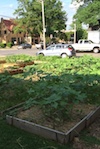 It’s hard to tell whether this clay was accidentally or intentionally smashed. The pieces have been fitted back together, and the fault lines are visible, but the glue is not. Iridescent stone beads adorn some of the cracks, where a little bit of pot is missing. Some shards were individually painted before they rejoined their places. It looks like people worked together to restore it. It’s no good for holding water now, but it can’t hold dark any more either. Where the water would pour out, light pours in.
It’s hard to tell whether this clay was accidentally or intentionally smashed. The pieces have been fitted back together, and the fault lines are visible, but the glue is not. Iridescent stone beads adorn some of the cracks, where a little bit of pot is missing. Some shards were individually painted before they rejoined their places. It looks like people worked together to restore it. It’s no good for holding water now, but it can’t hold dark any more either. Where the water would pour out, light pours in.
 Writing a letter to a stranger is all about trust. To offer your thoughts and opinions, some of which you might never say out loud, is truly relationship building. But there’s also something refreshing about writing to someone who is not fully aware of your daily life, your flaws, the way you look, or how cute your children are. They get a totally different picture of things, which makes the whole thing special. Our relationship took awhile to gain traction, and it was about a year before Michelle and I got to the meat and potatoes of things. Now I feel comfortable writing to her about just about anything, including some things I might never say out loud to people in my daily life.
Writing a letter to a stranger is all about trust. To offer your thoughts and opinions, some of which you might never say out loud, is truly relationship building. But there’s also something refreshing about writing to someone who is not fully aware of your daily life, your flaws, the way you look, or how cute your children are. They get a totally different picture of things, which makes the whole thing special. Our relationship took awhile to gain traction, and it was about a year before Michelle and I got to the meat and potatoes of things. Now I feel comfortable writing to her about just about anything, including some things I might never say out loud to people in my daily life.
Epiphany
It is hard to come here and not feel guilty. So I come bearing gifts: a bag of navel oranges and three pairs of warm socks (from my overstuffed drawer, yes, but clean and only slightly worn). In the morning they will all be snatched up, along with half of the oranges. Meanwhile, I stand outside in the dark and drizzle under the lamplight, waiting to be let in. My pillow’s stuffed in a white trash bag as deep blue splats form on my sleeping bag. It’s 11:00 p.m., January 6.
There are only four women staying at the shelter tonight, Maria tells me. Should be pretty quiet.


















